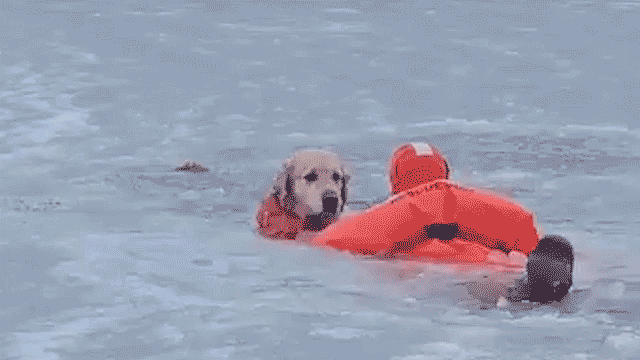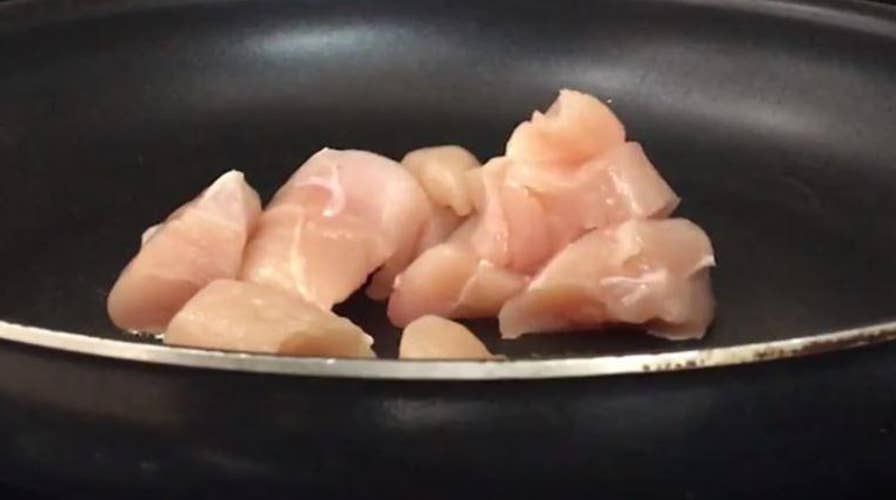CDC: Don’t wash your raw chicken
The CDC is issuing a stern warning against washing raw chicken and explains why it is so dangerous.
As families and friends wheel out firepits and grills for this year's summer season, the USDA wants everyone to keep three safety precautions in mind when preparing food outside.
The federal agriculture department issued a reminder for people to wash their hands regularly, make use of a food thermometer and avoid cross-contamination.
USDA researchers analyzed consumer behavior in test kitchens.
They found that many people forget these precautions, which could lead to avoidable foodborne illness.
VIRAL TIKTOK HACK SHOWS HOW TO KEEP FOOD COLD DURING A PARTY: 'KEEPS FOOD FRESH'
"Our research shows that participants were not adequately washing their hands or using a food thermometer," said Sandra Eskin, the USDA’s deputy under secretary for food safety, in a statement.
"Summer is a time to relax and enjoy delicious meals with friends and family but foodborne pathogens never rest," she continued.
"Following safe food handling practices during this and all other seasons can reduce the risk of you and your loved ones getting sick."
Why you need to wash hands before cooking
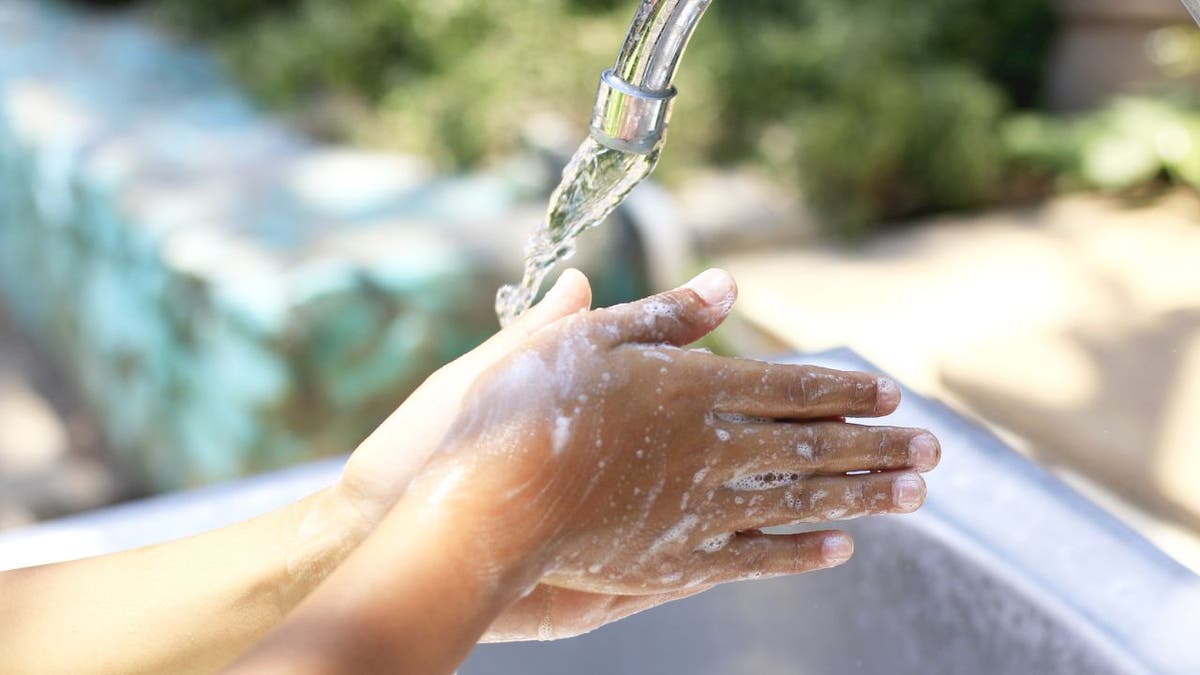
Hands should be washed thoroughly before, during and after handling food. (iStock)
From January 2020 to January 2021, the USDA found that 56% of its consumer test kitchen participants didn’t wash their hands before handling food.
Of those who did wash their hands before preparing food, about 95% did it incorrectly, according to the USDA.
Common mistakes included not washing long enough or failing to wet hands before touching the soap.
MOM SLAMMED ON TIKTOK FOR FEEDING BABY 'BLOODY' STEAK: EXPERTS WEIGH IN
The USDA says hands should be washed before, during and after food handling because it’s an essential step that prevents "bacteria from transferring from your hands to your meal."
Adequate handwashing by USDA standards includes wetting and lathering hands with soap and scrubbing hands for 20 seconds.
Once that’s done, hands can be rinsed and dried.
Why you should use a food thermometer
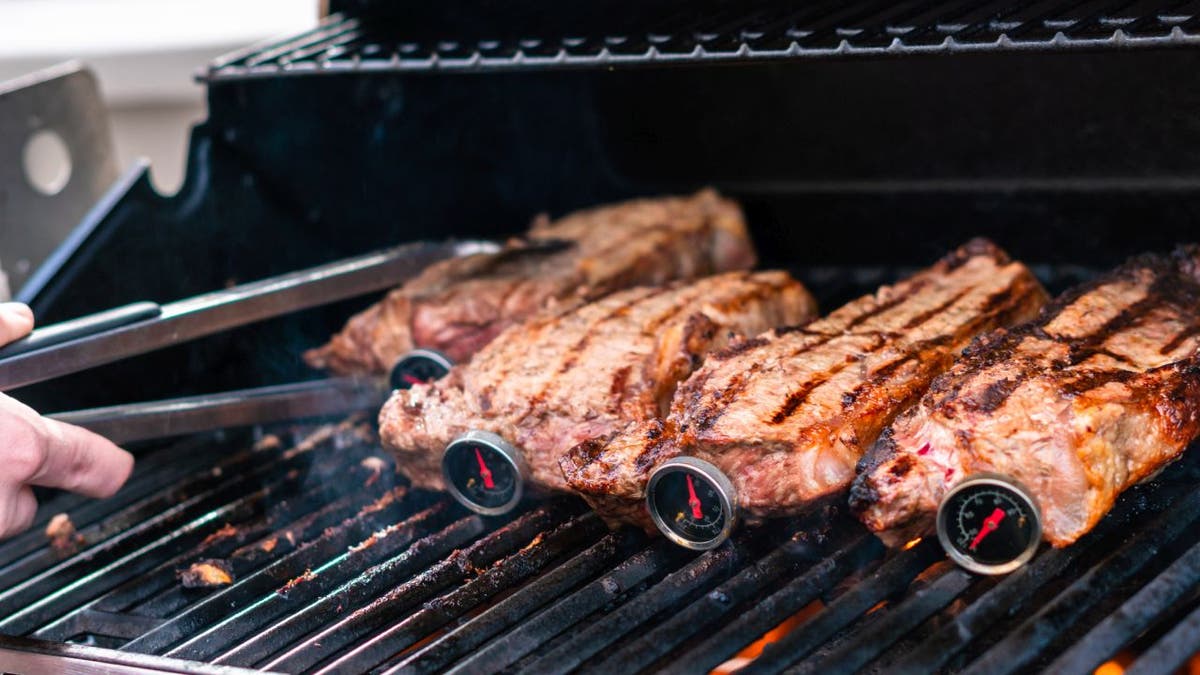
Food thermometers can help measure the internal temperature of meat. (iStock)
Only 55% of USDA test kitchen participants used a food thermometer to check the temperature of hamburgers and sausages when they were cooking.
The USDA recommends the use of food thermometers for all cuts of meat, so internal temperatures can be safely determined before serving.
"Insert the thermometer into the thickest part of the meat, through the side, for the most accurate temperature reading," the USDA wrote in its food safety warning.
The USDA has target temperatures it recommends for five meat categories.
HERE'S WHAT AMERICANS PREFER TO GRILL — AND HOW THEY GRILL IT
Failing to cook meats at the designated temperatures could put you at risk of a foodborne illness.
Beef, pork, lamb and veal steaks, chops and roasts: 145 degrees Fahrenheit (3-minute rest)
Fish: 145 degrees Fahrenheit
Eggs: 160 degrees Fahrenheit
Ground meat (beef, pork, lamb and veal): 160 degrees Fahrenheit
All poultry (whole or ground): 165 degrees Fahrenheit
Why avoiding cross-contamination is a must
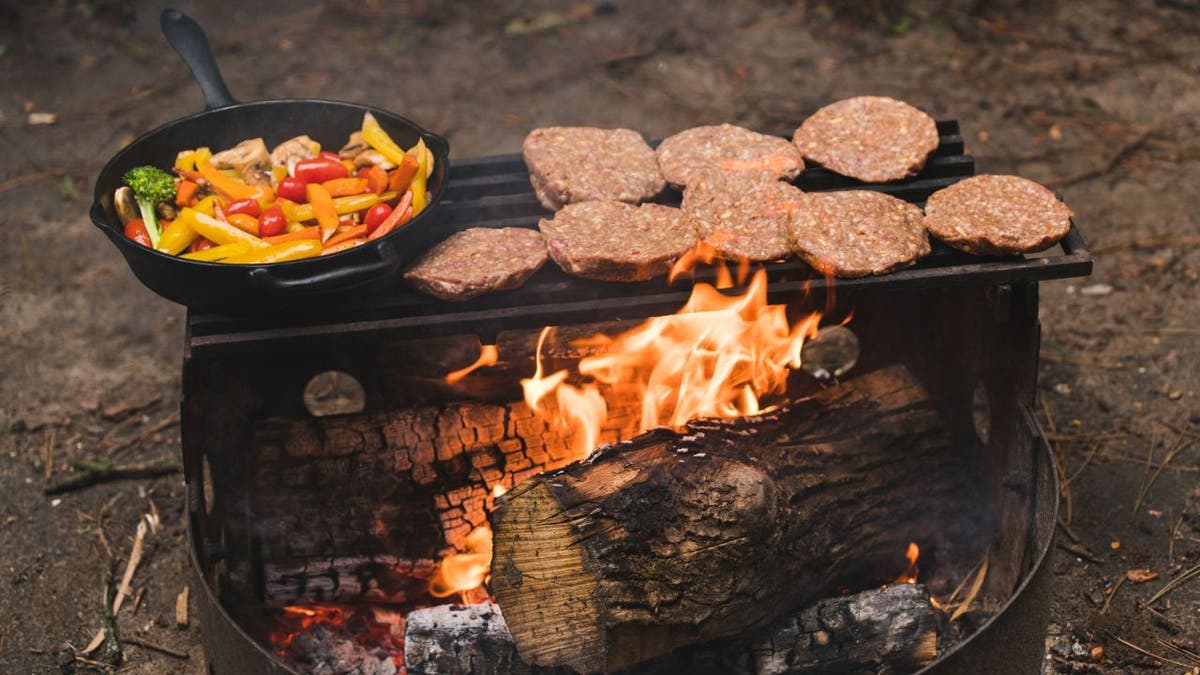
Meat and vegetables should be kept separate during food prep in order to avoid cross-contamination. (iStock)
Cross-contamination was another issue the USDA observed in consumer test kitchens.
Nearly one-third (32%) of test kitchen participants contaminated plates and cutting boards when they failed to separate raw meat from fruits and vegetables.
If there’s only one cutting board available, the USDA recommends washing it thoroughly with "hot, soapy water" before moving on to another food group.
Twenty-eight percent contaminated kitchen sinks, while 12% contaminated spice containers and 8% contaminated cupboard handles.
To minimize cross-contamination risks, the USDA says raw meat and produce should be cut on separate cutting boards.
FOLLOW US ON FACEBOOK FOR MORE FOX LIFESTYLE NEWS
If there’s only one cutting board available, the USDA recommends washing it thoroughly with "hot, soapy water" before moving on to another food group.
Dishes, countertops and cooking surfaces should also be cleaned with soap and water after food prep, according to the USDA.
"[The] USDA encourages all Americans to follow these food safety tips to keep you and your family foodborne illness free this summer," the agency wrote.
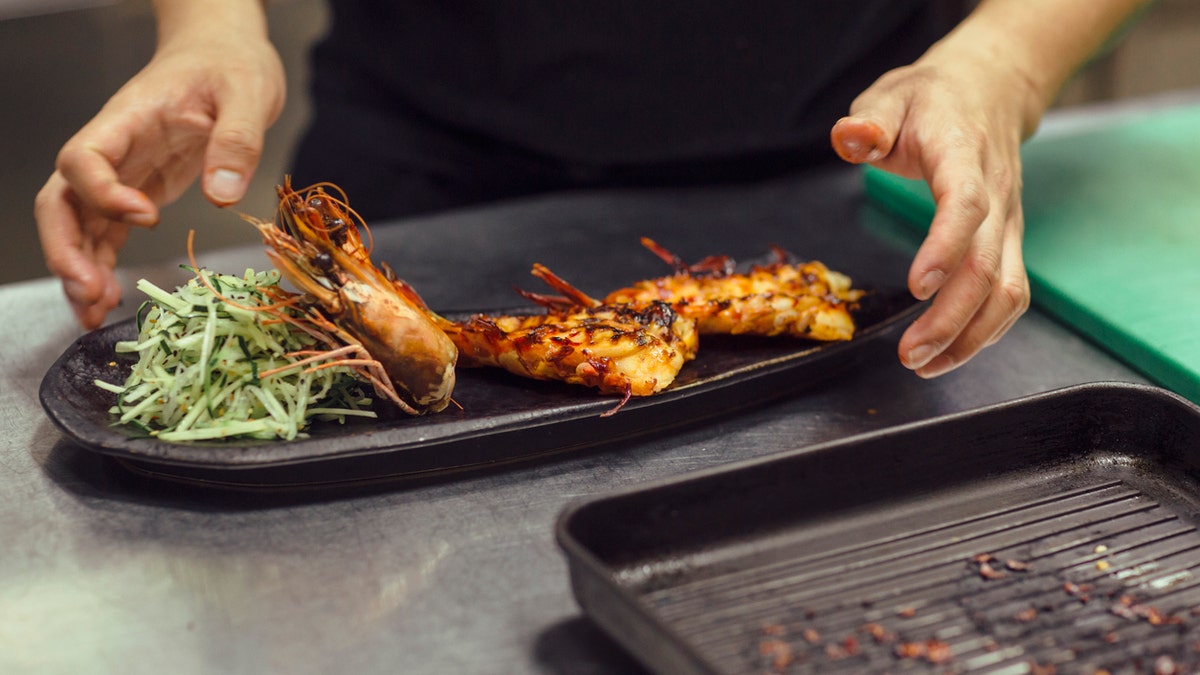
The U.S. Department of Agriculture has resources on how to safely cook seafood, meat and more. (iStock)
Additional food safety precautions can be found on the USDA’s Food Safety and Inspection Service website.
CLICK HERE TO GET THE FOX NEWS APP
For questions on how to cook meat, the USDA encourages people to call or email its Meat and Poultry Hotline at 1-888-674-6854 or MPHotline@usda.gov, from Monday to Friday (10 a.m. to 6 p.m. EST).
Representatives are also available for live chats on ask.usda.gov.



















